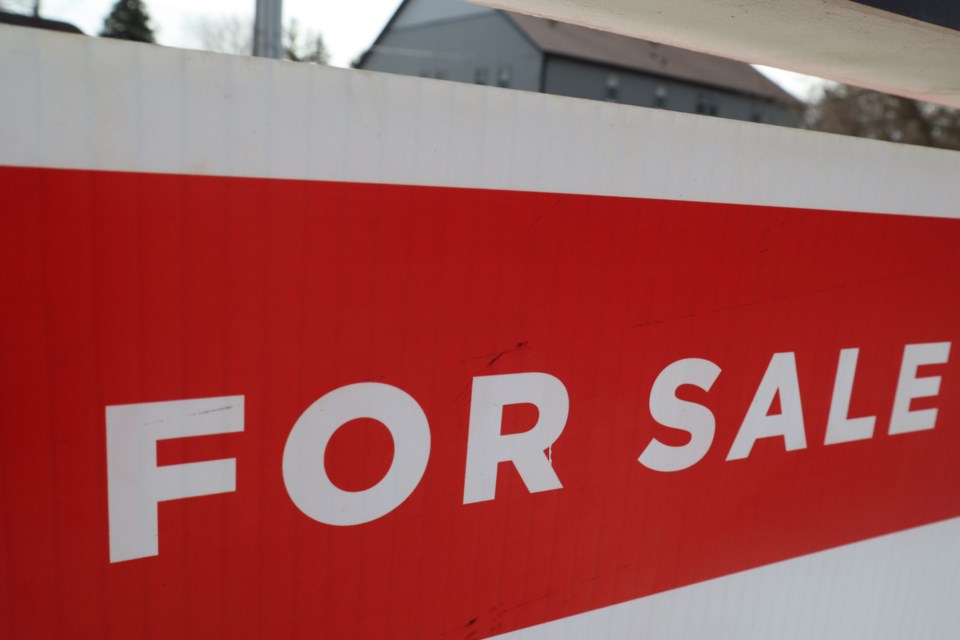Residential properties costing less than $500,000 are becoming more rare in Guelph.
A recent report from the Municipal Property Assessment Corporation (MPAC) indicates a shift of the types of homes with a value under $750,000 and where they can be found.
MPAC is a not-for-profit funded by Ontario municipalities. Its role is to assess and classify properties in the province.
In 2013 in Guelph, 88.4 per cent of properties were less than $500,000. In 2023, only 7.3 per cent of properties were under $500,000.
While there are number of apartment-style condominiums for sale in Guelph for less than half a million, there are currently only two homes listed on realtor.ca under $500,000.
The numbers in the report are inline with what Dillon Fraser, president of the Guelph and District Association of Realtors has seen in the Guelph market.
"The reality is that current home prices are a reflection of various economic forces at play. Factors like supply and demand, increased construction and labour costs plus inflation are all part of what's driving today's house prices," said Greg Martino, vice-president and chief valuation and standards officer for MPAC, in a press release.
The main driver is prices are trending upwards and it's compounded by the fact that “we're not building enough affordable units that are more geared towards what people can afford,” said Fraser.
He noted the trends in the report will continue to be a reflection of the averages.
He doesn’t know if the percentage of Guelph homes under $500,000 could increase by a large amount in the future.
The lower end of the market in 2023 was $295,000. “So the portion of the market that is $500,000 is small. And the number of properties that will fall into that … even if they were prioritized and built en masse would be still a smaller subset,” he said.
As prices increase the number of residential properties under $500,000 decrease. This means 7.3 per cent of Guelph homes with this value in 2023 could drop in the next five years, said Fraser.
There are 11 Ontario cities in the report where less than one per cent of properties are under $500,000. Caledon is one of those cities at zero per cent.
The MPAC website has a chart and interactive map with cities and their property values.
The average Guelph home price of all property types in 2013 was $384,000 and in 2023 was $897,000, said Fraser.
There are many one bedroom condos being built which are contrasted by the large detached and semi-detached homes. The missing middle are homes that are slightly below and slightly above $500,000, he said.
The average income for full-time workers in Guelph was $76,900 in 2020, based on the 2021 census.
The average income for full-time workers in Guelph was $68,528 in 2015, based on the 2016 census.
The average home price has increased by just over eight per cent each year for the last 10 years, said Fraser.
“And it speaks to the affordability crisis, the housing affordability crisis that we're running into, because the increase in wages hasn't kept up with the increase in housing prices,” he said.
Property prices in the $1 million to $1.5 million range are becoming more common but less popular, said Fraser. These are the traditional detached homes that a family of four can live in with ample space.
In 2013, 0.3 per cent of residential properties were between $1 million and $1.5 million. In 2023, there were 17.5 per cent of properties with the same value range.
Guelph residential properties may have the ability to have four units built on them, without receiving special permission from city council. This was one of 17 recommendations to address housing affordability at a special council meeting this past October.
This type of solution could provide more affordable units in the marketplace, Fraser said in a follow-up email. Although these property types may not be accessible under $700,000, it could “provide more options for multi-generational housing, more rental inventory, and opportunities for people who would typically qualify for homes under $700,000 given ... the potential rental income,” he said.
Fraser hopes Guelph and the rest of the province will allow for more gentle density “and as a community, we can embrace that so that it can facilitate affordability.”
